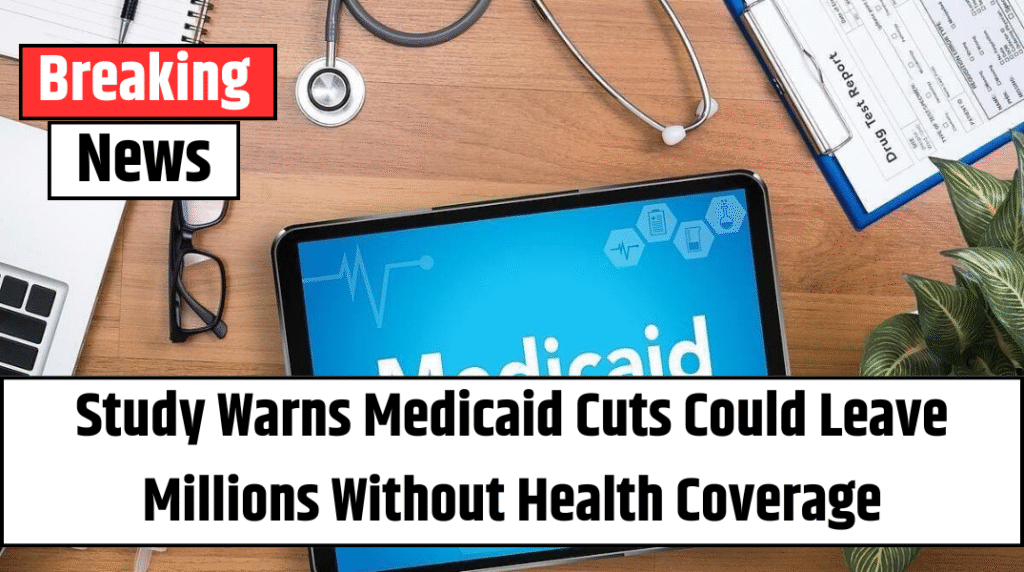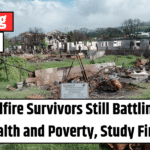A controversial piece of legislation passed by the U.S. House of Representatives could strip health insurance from millions of Americans and potentially result in thousands of preventable deaths annually, according to a new peer-reviewed study published in the Annals of Internal Medicine.
The legislation, dubbed the “One Big Beautiful Bill Act,” proposes sweeping Medicaid cuts that researchers say could leave approximately 7.6 million people uninsured — a shift that could drive up mortality rates across the country.
Medicaid Cuts with a Deadly Price Tag
The study was led by Dr. Adam Gaffney, a critical care physician and health policy expert at Harvard Medical School. Based on their analysis, Gaffney and his team estimate that over 16,600 people could die each year due to losing access to preventive and lifesaving medical care if the bill is signed into law.
“In intensive care units, we see the consequences of delayed care every day,” Dr. Gaffney noted. “Without access to doctors, medication, or screenings, patients show up critically ill — conditions that could’ve been prevented with regular healthcare access.”
And the crisis may deepen further. The U.S. Senate has signaled an intent to pursue even deeper Medicaid cuts than those included in the House version, according to The New York Times. Those proposed reductions, analysts say, could cause an even greater surge in uninsured Americans and lead to an even higher death toll than the study estimates.
Six Key Medicaid Reductions Analyzed
Using figures from the non-partisan Congressional Budget Office, the researchers focused on six significant cost-cutting provisions in the House bill, each estimated to reduce Medicaid expenditures by at least $100 billion over the next decade:
-
Rolling back parts of the Affordable Care Act’s Medicaid expansion
-
Capping per-person Medicaid expenditures
-
Introducing work requirements for Medicaid eligibility
-
Reducing federal matching funds for Medicaid
-
Freezing taxes on healthcare providers used to help fund Medicaid
-
Repealing continuous coverage protections put in place during the Biden administration
Drawing on prior studies of Medicaid reform outcomes, Gaffney’s team projected a stark impact: between 600,000 and 3.9 million people could lose coverage under just these provisions — leading to 651 to 12,626 preventable deaths per year.
Projected Outcomes if House Bill Becomes Law
If enacted without changes, the bill’s real-world effects could include:
-
7.6 million people losing health coverage
-
1.9 million losing access to their primary care physician
-
1.3 million unable to afford needed prescription medications
-
Over 380,000 women missing vital breast cancer screenings
-
246,000 individuals denied care due to outstanding medical debt
-
More than 16,600 preventable deaths annually
A Politicized Path Forward
Critics have accused the bill’s backers of sacrificing healthcare access for low-income Americans to benefit the wealthy. “President Trump and Republicans in Congress are prioritizing tax breaks for the rich over the health of the working class,” said Dr. Steffie Woolhandler, a public health professor at CUNY Hunter College and co-author of the study.
The Senate’s proposed version could worsen the situation further by eliminating, rather than freezing, healthcare provider taxes — reducing Medicaid support for states by hundreds of billions over the next 10 years.
A Stark Divide
While proponents argue that the bill encourages efficiency and reduces government spending, critics contend it will overload already struggling hospitals, dismantle community clinics, and exacerbate healthcare inequality in the U.S.
As the Senate debates the bill, health experts are sounding the alarm: the stakes aren’t just financial — they’re life and death.


